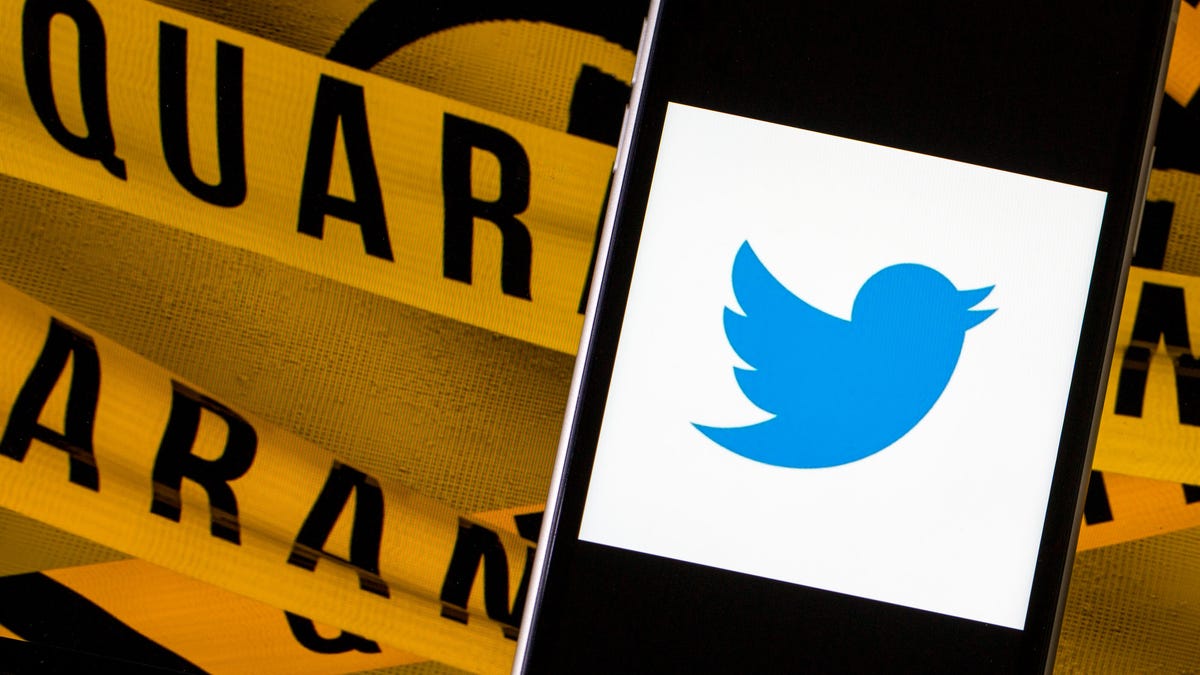Twitter leaves up Trump's 'liberate' tweets about states with lockdown protests
The social media company says the tweets don't violate its rules against content that could directly risk people's health.

Trump's latest tweets about the coronavirus lockdown protests are another test for Twitter and Facebook.
Twitter said Friday that President Donald Trump's tweets calling for the liberation of three states where people are protesting coronavirus lockdowns don't run afoul of its rules against content that could pose a risk to people's health.
Under new guidance that Twitter released in March, the company said it would prioritize pulling down content that has "a clear call to action that could directly pose a risk to people's health or well-being." While Trump's tweets appear to endorse protests against lockdown measures, Twitter said Trump's remarks are vague and unclear. The move highlights another loophole that could allow politicians and others to get around Twitter's rules against harmful coronavirus content.
In the series of tweets, Trump says "LIBERATE MINNESOTA," "LIBERATE MICHIGAN" and "LIBERATE VIRGINIA and save your great 2nd Amendment. It is under siege!."
LIBERATE MINNESOTA!
— Donald J. Trump (@realDonaldTrump) April 17, 2020
This week, demonstrators in Michigan drove thousands of vehicles to the state capitol to protest stay-at-home orders, The Detroit Free Press reported. On Friday, at least 400 people gathered outside Minnesota Gov. Tim Walz's home in St. Paul to protest the state's stay-at-home order and many weren't practicing social distancing or wearing masks, the Associated Press reported.
Trump's tweets have sparked criticism from Democratic politicians, including Washington Gov. Jay Inslee, who say the president's remarks endanger people's health.
The president’s statements this morning encourage illegal and dangerous acts. He is putting millions of people in danger of contracting COVID-19.
— Governor Jay Inslee (@GovInslee) April 17, 2020
His unhinged rantings and calls for people to “liberate” states could also lead to violence. We’ve seen it before. 1/7
The White House didn't immediately respond to a request for comment. Trump's calls to liberate certain states were also posted on Facebook and still remain on the social network. Facebook didn't immediately respond to a request for comment.
Twitter has taken action against coronavirus content posted by politicians before that could cause harm. In March, the company removed two tweets by Brazil's President Jair Bolsonaro that reportedly included videos of the politician questioning social distancing and quarantine measures. The company deleted a tweet by Venezuelan dictator Nicolás Maduro for recommending the use of a "natural brew" as a potential cure for the coronavirus. And Twitter removed a tweet from Rudy Giuliani, Trump's personal attorney, that quoted conservative activist Charlie Kirk, who falsely claimed that "hydroxychloroquine has been shown to have a 100% effective rate treating COVID-19."
Still, some tweets from high-profile figures remain on the site. Tesla CEO and co-founder Elon Musk tweeted that "kids are essentially immune" from COVID-19 even though kids can catch the virus. Twitter left up Musk's tweet and said it was because the tweet wasn't "definitive," Axios reported.
Cracking down misinformation from celebrities and politicians is important because their social media posts can spread more quickly than other users. In April, a study by the University of Oxford and the Reuters Institute found that misinformation from politicians, celebrities and other public figures made up 69% of social media engagement even though they were a small part of the sample that researchers studied. Twitter appeared to lag behind other social media platforms such as Facebook and YouTube when it comes to fact-checking content. About 59% of posts rated as false by fact-checkers remained up on Twitter.

